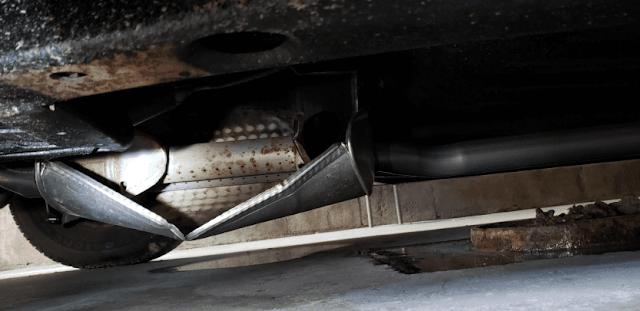What Happens When You Have a Bad Catalytic Converter?
A poorly performing catalytic converter isn’t like most other working vehicle systems. If a car fuse blows, an electrical system goes on the blink. It’s the same with the engine because you feel the misfiring cylinders. The engine’s overheating, the car’s stalling out, and there’s a general performance drop off. No, a bad catalytic converter isn’t easy to diagnose, but its symptoms can really hit hard.
Hard-hitting Environmental Symptoms
What happens when your vehicle’s catalytic converter goes bad? Well, your emissions are moving unprocessed into the atmosphere. When it was functioning properly, the chemical neutralization process converted those emissions into harmless compounds. That’s no longer the case. In the short-term, the car no longer complies with local vehicle emissions standards, as set by a nationally accredited authority. From a long-term perspective, those harmful emissions are contributing to the global warming problems we’re all trying so hard to prevent.
Studying Performance Hits
Catalytic converters are intricate devices. Exotic alloys and carefully designed internal architectures go into their build. If that manufacturer-established construct breaks, then engine back pressure isn’t properly channeled out through the exhaust system. In other words, if that device is clogged or even partially restricted, then the engine’s gaseous byproducts can’t escape properly. That restrictive flow results in a hampered engine. Incidentally, if a rattling noise accompanies this restrictive effect, the honeycombed catalyst material has likely broken loose. Get to your garage right away and have the catalytic converter replaced.
Studying Detectable Symptoms
Try to narrow down the issue. There’s a clog in the exhaust system because of the broken catalytic converter, so expect engine issues. Misfiring problems are likely, as is an “Engine Check” light that refuses to go away. Similarly, fuel economy figures will drop to the point that you feel as if you can’t afford to be more than a few kilometres away from the petrol station. Finally, if you live in a country that enforces smog check regulations, the vehicle will not pass that test, not when environmentally harmful gases are spilling from the exhaust system.
A quick look at the engine, perhaps at the carburetor, won’t fix this problem. The fault is in the exhaust system. More precisely, the catalytic converter is bad. It’s dumping pollutants into the air. On top of that environmental hazard, your car is experiencing a performance hit, a drop in fuel economy, and perhaps a strange rattling sound. Troubleshoot the problem now. Better yet, have the issue diagnosed by a local exhaust centre, someone who knows all about your exhaust system and its catalytic converter.
Contact http://trufitexhaust.com.au/ for bad catalytic converter's solution.




Comments
Post a Comment